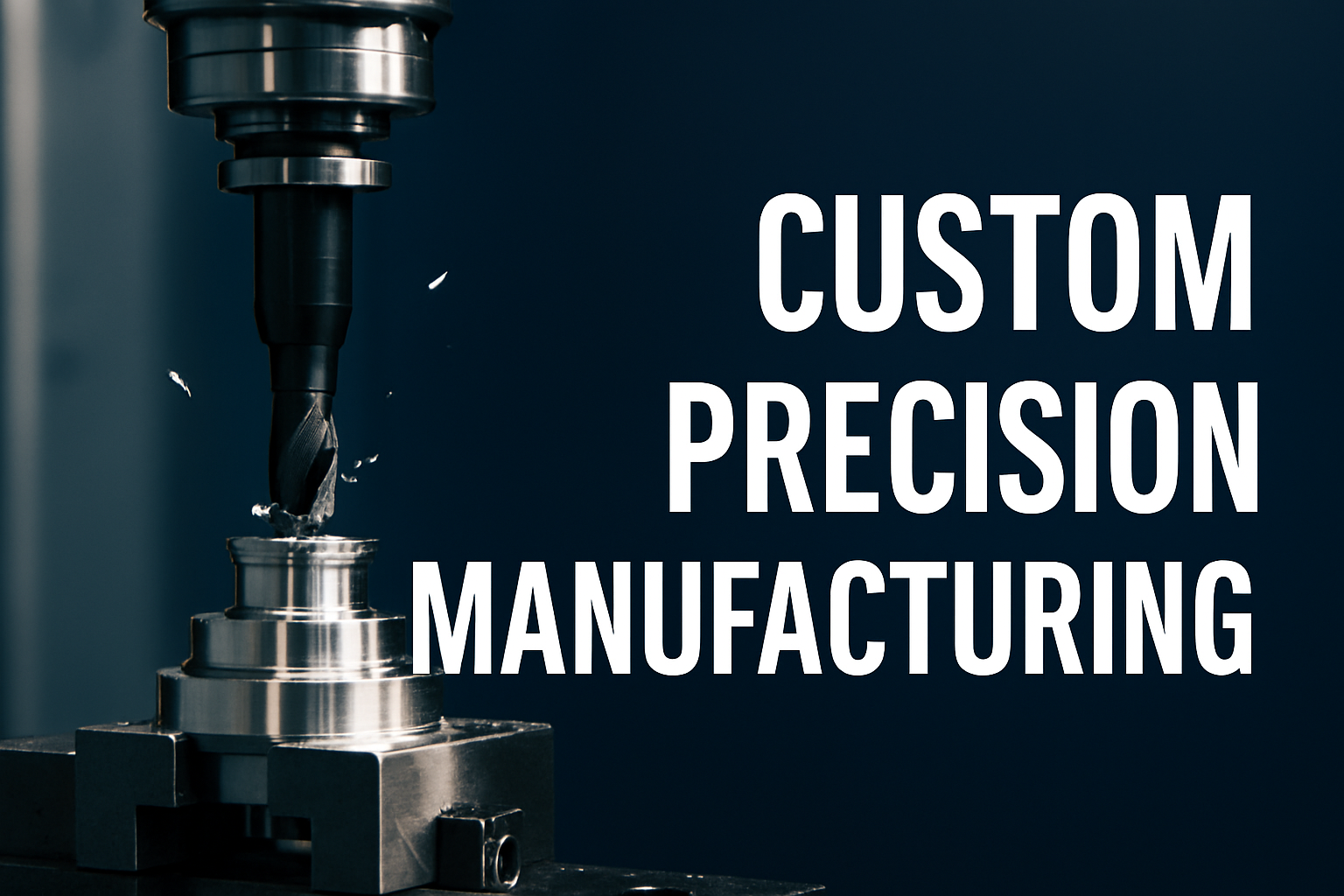In today’s highly specialized industries, off-the-shelf solutions often fail to meet the performance demands of cutting-edge applications. That’s where custom precision manufacturing steps in. This field offers bespoke machining solutions tailored to exact specifications, ensuring exceptional quality, tight tolerances, and enhanced performance. But what exactly is custom precision manufacturing, and why is it critical across so many sectors?
Let’s dive deep into this essential manufacturing discipline from an industry expert’s perspective.
Defining Custom Precision Manufacturing
Custom precision manufacturing refers to the production of specialized components, tools, and assemblies with extremely tight tolerances using advanced machining processes. These parts are often unique, engineered for a specific purpose, and manufactured in small to medium batch sizes or even as single prototypes.
Unlike mass manufacturing, which prioritizes volume and cost efficiency, custom precision manufacturing prioritizes:
Accuracy
Quality
Material performance
Client-specific customization
According to a report by the National Institute of Standards and Technology (NIST), precision manufacturing is pivotal for innovation in fields like aerospace, medical devices, electronics, and defense.
Core Processes in Custom Precision Manufacturing
| Process | Description |
|---|---|
| CNC Machining | Computer-guided milling, turning, drilling of parts. |
| Electrical Discharge Machining (EDM) | Precision cutting of hardened metals. |
| Grinding | Achieving ultra-smooth surfaces and exact dimensions. |
| Laser Cutting and Etching | High-precision detailing for metals and composites. |
| Custom Finishing | Polishing, anodizing, or coating for durability. |
1. CNC Machining: The Backbone of Precision
At the heart of modern custom manufacturing lies custom machining through Computer Numerical Control (CNC) equipment. CNC machines allow fabricators to produce highly complex parts with extreme accuracy, often to tolerances as fine as +/- 0.001 inches.
CNC processes include:
Milling
Turning
Drilling
Tapping
These machines work from detailed CAD/CAM files to ensure every cut, hole, and surface meets the exact design specifications.
2. Specialized Material Capabilities
Custom precision manufacturers are adept at working with a variety of materials, such as:
Stainless steel
Titanium
Inconel
Aluminum alloys
Plastics like PEEK and Delrin
The ability to machine exotic and difficult materials is a hallmark of a true precision manufacturing partner.
3. Industries That Rely on Custom Precision Manufacturing
Custom components are crucial for industries where failure is not an option:
Aerospace: Turbine blades, landing gear components
Medical Devices: Surgical instruments, orthopedic implants
Defense: Weapon systems, armored vehicle components
Semiconductors: Micromachined fixtures and tools
Automotive: High-performance engine parts
Precision ensures these components meet critical safety, functionality, and longevity requirements.
Advantages of Custom Precision Manufacturing
| Advantage | Impact |
|---|---|
| Tight Tolerances | Superior fit, finish, and functionality. |
| Design Flexibility | Tailor components to meet unique application needs. |
| Rapid Prototyping | Accelerate development cycles with prototype fabrication. |
| Material Versatility | Capability to machine metals, composites, and plastics. |
| Competitive Edge | Enables innovation and differentiation in crowded markets. |
Choosing the Right Custom Machining Partner
When selecting a custom precision manufacturer, consider the following:
Certifications: ISO 9001, AS9100 (especially for aerospace and defense)
Equipment Capabilities: 5-axis CNC, EDM, CMM inspection tools
Experience with Your Industry: Familiarity with application-specific requirements
Quality Assurance Systems: Commitment to process control and detailed inspections
Scalability: Ability to transition from prototypes to full production runs if needed
Real-World Example: Medical Device Manufacturing
A custom machining company partnered with a medical device startup to create titanium spinal implants. Through precision milling and custom anodizing, they delivered flawless components that met FDA regulatory standards — enabling faster market entry and improving patient outcomes.
This real-world impact highlights why expertise in custom precision manufacturing is vital to critical industries.
The Power of Custom Precision Manufacturing
When innovation, performance, and reliability are non-negotiable, custom precision manufacturing becomes indispensable. Whether crafting surgical instruments, aerospace components, or next-generation electronics, precision manufacturers translate complex engineering visions into tangible, flawless parts. Partnering with an expert in custom machining gives companies the edge they need to excel in competitive, high-stakes markets.
If your project demands nothing less than perfection, custom precision manufacturing is the solution.



